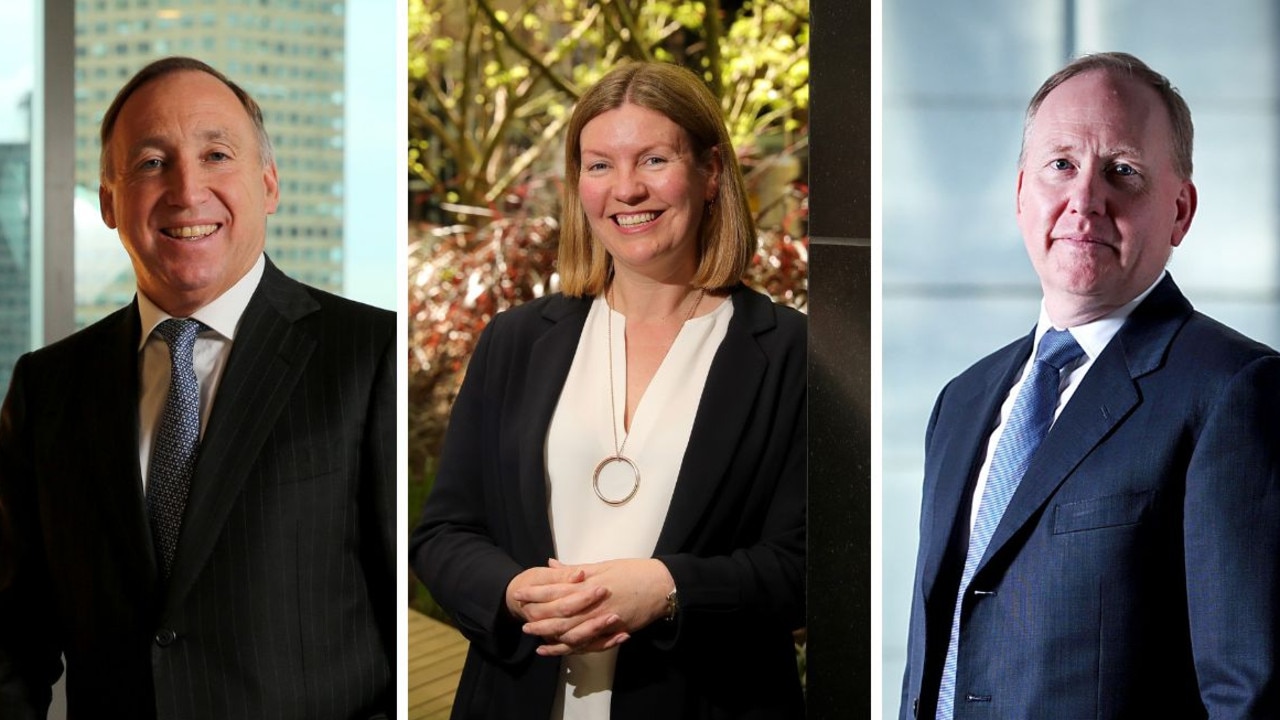Superannuation funds deliver solid returns but ‘sticky’ inflation heightens rates warning
Global interest rates should fall but won’t return to pre-Covid levels because inflation would continue to be ‘sticky’, says AustralianSuper’s Mark Delaney.

Global interest rates should fall but won’t return to pre-Covid levels because inflation would continue to be “sticky”, says the chief investment officer of $330bn AustralianSuper, Mark Delaney.
Releasing the fund’s latest investment performance figures, Mr Delaney said the global economy was “rebalancing” from the Covid-19 years, with interest rates expected to come down, but not to pre-Covid levels.
His comments were echoed by the chief investment officer for Colonial First State, Jonathan Armitage, who said interest rates would remain “higher for longer” because inflation data would be “volatile”.
“Inflation is not coming down as rapidly as central banks have hoped and that a lot of investors had hoped,” he said.
“It is going to be a feature of markets – not just over the next 12 months but over the next couple of years as policy makers deal and central bankers deal with structural forces around the ageing population and the energy transition.
“Trade barriers will continue to increase the cost of doing business. The resting heart of inflation is higher than what we have been used to, which means the cost of capital, through interest rates, is going to be higher as well.”
The investment returns from the industry super giant, AustralianSuper which takes in $20bn a year in net cash inflows, have come in below the returns of some rival funds.
The fund on Wednesday reported a “solid return” of 8.46 per cent over the financial year to June 30 for its balanced investment option, with its high-growth option coming in at 10.2 per cent for the year. More than 90 per cent of fund members are invested in the balanced option.
In contrast, retail fund AMP has reported an 11.4 per cent return from its MySuper 1970s super fund option.
AustralianSuper’s major rival, the Australian Retirement Trust, announced this week that its MySuper option had returned 11.3 per cent over the financial year.
The results come as superannuation research house SuperRatings estimated the median super fund balanced option for the year to June 30 would increase by an estimated 8.8 per cent.

It said super funds were expected to deliver stronger-than-expected returns over the financial year just ended, “with the losses from the start of the financial year now a distant memory, and despite renewed fears around the trajectory of inflation”.
SuperRatings executive director Kirby Rappell said fund returns had made a strong turnaround since November to deliver a second year of above-average returns.
“Top performers will be handing members double-digit returns for the year, reinforcing superannuation funds’ ability to deliver a competitive outcome for everyday Australians,” he said.
Mr Delaney said the financial year had been one of two halves, with the second half being boosted by the strong performance of US tech stocks, including Nvidia.
He said funds which had a heavy exposure to technology stocks had done particularly well over the year, while investments exposed to high interest rates had struggled.
“If you weren’t in the US, you were just getting modest returns,” he said. “That is where the money has been made over the year.
“Those investments exposed to higher interest rates really struggled, including fixed income.
“Even infrastructure didn’t do as good this year as last year.
“Property, which has got both revenue problems and suffered from the impact of higher interest rates, was the worst-performing asset class.”
Mr Delaney said the Covid-19 investment cycle was coming to an end, with interest rates expected to fall but with inflation and rates expected to remain higher than before Covid.
He said the Reserve Bank would be careful about cutting interest rates too much as they managed a “balancing act” between inflation and avoiding a “big downturn in the economy”.
“Given that they’ve got this balancing act between maintaining a strong labour market and gradual deflation, they will be inclined to be pretty careful about how they act in any direction,” he said. “It’s no different to what central banks have been doing globally.”
Mr Delaney said he expected central banks would be successful in getting inflation down “but to keep it down will be more work than in the past”.
He said the biggest risk to the global outlook was war.
Mr Delaney said he did not expect the Australian economy to get “materially worse.”
“It looks like we are going through a period of slow growth,” he said.
“The Reserve Bank wants to gradually rebalance the economy, a bit like the US Federal Reserve tried to do.”
Mr Delaney said the global economy had managed through a series of crises including Covid and a significant increase in interest rates over the past five years.
But he said AustralianSuper’s investment portfolio had been “pretty robust.”
“The biggest political risk is geopolitical things like war,” he said. “If that happens, it materially changes everything.”
Mr Delaney said he expected there would be ongoing pressure on inflation as a result of changes in supply chains and diversification away from China as a source of cheap inputs.
But he said the expanding role of artificial intelligence could be a deflationary counter force.
“From 2000 to 2020 there was a secular downward pressure on inflation. Central banks struggled to get inflation up,” he said.
“But we are past that period where there is downward pressure on inflation.”
But Mr Delaney said the use of artificial intelligence could increase productivity and help to hold down inflation.
“These things tend to drive productivity and make things more affordable,” he said.
Mr Armitage said the outlook for more volatile inflation and continued high interest rates meant that diversification was important for investors.
He said this would keep rates higher and create “headwinds for some sectors such as commercial real estate”.
“Managing the evolving macro-economic environment will also be paramount over the coming year,” he said.
Releasing AMP’s results for the year, chief investment officer Anna Shelley was confident about the long-term outlook for global share markets.
“The prospects for global equities are very strong over the long time frame we consider for our members who will be invested for another 20-plus years,” she said. She said artificial intelligence-led productivity benefits should underpin GDP growth and corporate earnings for many years to come.
“This, combined with a decade or so of spending on clean energy infrastructure, results in a very positive outlook for equity and corporate debt markets,” she said.
“Looking ahead, short-term market uncertainty in the lead-up to the US elections may present an attractive buying opportunity, in which event we would look to take advantage of share market weakness in delivering maximum returns for our members.”
Originally published as Superannuation funds deliver solid returns but ‘sticky’ inflation heightens rates warning



